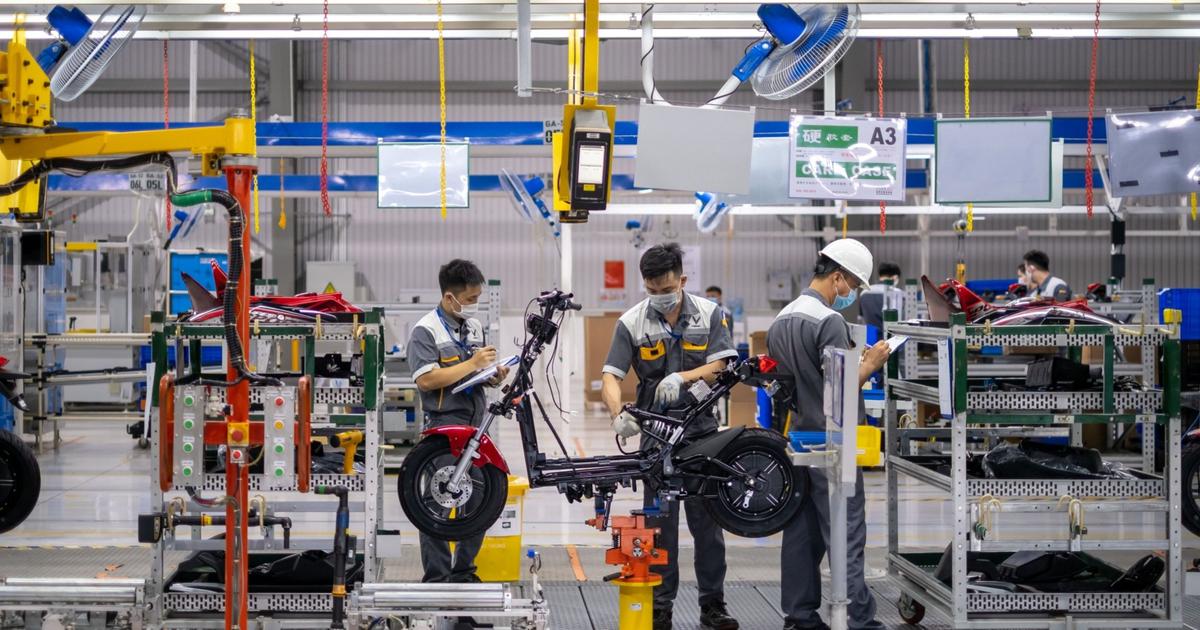Enlarge image
World of work (symbolic image): half on the go, half stressed
Photo: Richard Baker / In Pictures / Getty Images
If you ask people whether they felt stressed at work the day before, four out of ten in Germany say "yes".
That seems like a lot, but the Federal Republic still ranks well behind other countries, as the US opinion research institute Gallup found out in a large-scale survey: The stress level worldwide is at a record high of 44 percent, in the USA it is even 52 percent.
For the “State of the Global Workplace 2022” report, more than 105,000 employees in 146 countries were asked how they are doing in working life.
Two trends are emerging in Europe: the people here are among the happiest people in the world, but they are the most dissatisfied with their managers.
The stress is mainly a consequence of the global pandemic, says Marco Nink, Director of Research & Analytics EMEA at Gallup.
In Germany, the values are lower than elsewhere because the country benefits "from a combination of extensive job security through the instrument of short-time work and a stable social and health system," he says.
And: »German employees need to worry less about their livelihood than employees in many other countries.
The obligation to work from home has also reduced the daily stress level for many, for example by eliminating the daily commute.«
Almost half on the go
However, the bond with the employer continues to weaken.
This phenomenon has made a name for itself worldwide under the keyword “Great Resignation” or, according to notoriously cheerful career portals like Linkedin, “Great Reshuffle”.
In America, there were initially crowds of poorly paid service providers who no longer wanted to do their work and sought their luck elsewhere.
But the spirit of optimism has long since gripped large parts of the labor market.
In Europe, the bond with the employer has become particularly weak;
almost half of the local employees are latently looking for a new job and believe that the time is right for a change.
On average, 44 percent of the European employees surveyed, 16 percent more than in the previous year, say that it is a good time to look for a new job.
In Germany, this is even confirmed by 53 percent.
However, very few want to move for a new job – only one in ten is willing to do so.
"The consequences of the changes in working life caused by the corona pandemic are particularly evident here," says Marco Nink.
“Employees have learned over the past two years that work does not necessarily require being in a specific place.
They are therefore less willing than ever to accept personal sacrifices for a new job - and the dynamic job market, which has a shortage of skilled workers and offers many new opportunities, confirms their view.
The corona pandemic has changed the situation permanently in favor of the employees.
The home office will remain and will be an important part of employer attractiveness.«
Only 16 percent of employees in Germany have a strong emotional connection to their company because of the leadership they experience in the company.
At 14 percent, Europe as a whole has the lowest value of a total of ten regions worldwide.
Employees in the US and Canada are the most devoted, with a third feeling connected to the company.
Life satisfaction has fallen compared to the previous year.
In Europe, at 47 percent, just under half (minus 5 percent) are satisfied with their situation (Germany: 56 percent);
worldwide, however, the value is only one third.
This may also be due to the fact that only a good fifth of those surveyed worldwide stated that they could live well off their own income.
In Europe it is at least 42 percent.
The happiest workers live in Scandinavia.
In Finland, Denmark, Iceland, Sweden and Norway, the satisfaction rate is two-thirds or more.
In the Netherlands it is even three quarters.
»To sum up, Europe is great for living – but not for working.
While European employees are above average satisfied with their lives, they are at the same time more frustrated with the leadership they experience at work and their working environment than the rest of the world«, says Marco Nink.









